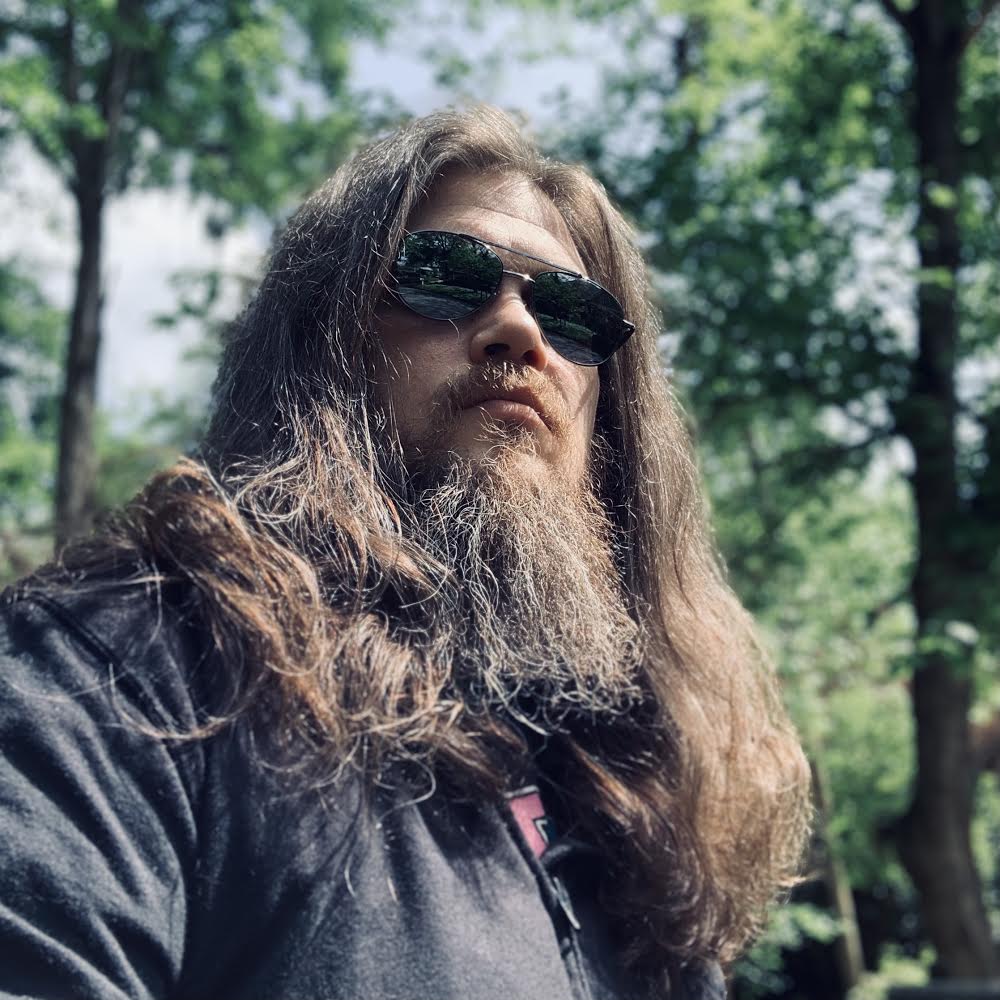Jason Aaron compares his Action Comics story to his iconic run on Thor: "I needed to, in my mind, make a similar statement with Superman"
Writer Jason Aaron opens up about his lifelong love of Superman and his goals for his Action Comics run

Jason Aaron has made the leap from Marvel Comics to DC, and for his second big mainstream DC project, he's taking on a three issue arc of Action Comics alongside artist John Timms which will put a new spin on Superman and his opposite doppelganger, Bizarro.
With the intent of making a statement about Superman on the same level as the statement he made about Thor in his long career at Marvel Comics, Aaron is diving in hard right off the bat in January 9's Action Comics #1061.
Before that, Newsarama spoke with Aaron about what it's like working on a very different kind of mythical hero in Superman, his lifelong love of the Man of Steel, and the fellow DC writer whose guidance he sought in taking on the job of writing Action Comics.
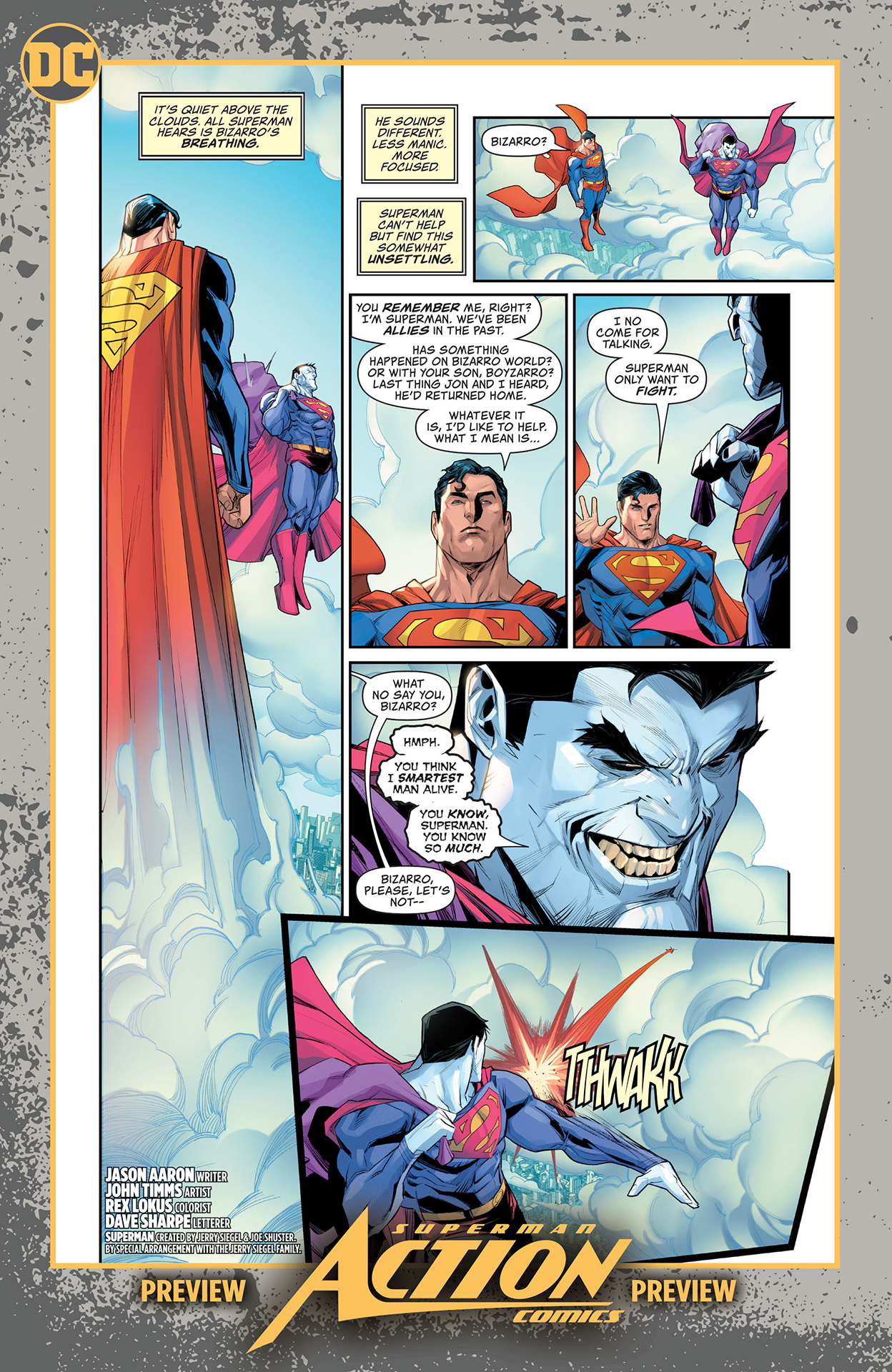
Newsarama: Jason, what's your relationship to Superman? Everyone in comics has some kind of connection to Superman, because he's kind of the template. What's your Superman background? Was he a character you specifically wanted to write coming to DC?
Jason Aaron: Superman has been a part of my life as a fan since the early days. The first comic book I ever read was an issue of World's Finest with a Neal Adams Batman and Superman cover. And I you know, I've still got my Superman nightlight I had when I was a kid, and the hunk of Kryptonite I bought out of an ad in the back of a comic book. I've got my Superman the Movie metal trash can that has seen its share of trash, but it's still going strong.
In terms of comics, I've been reading Superman comics consistently since I kind of got big into comics, in the Pre-Crisis on Infinite Earths days. So one of the first Superman stories I've ever read was Alan Moore and Curt Swan's 'Whatever Happened to the Man of Tomorrow?', and then the John Byrne relaunch right after Crisis on Infinite Earths.
So yeah, Superman has always been a part of me as a fan. I've said many times before, and it's true, I don't really walk around with a list of comic characters I want to write. But there are a few I've always wanted to write. It's a very, very short list, and Superman is right at the top. So I've always wanted to take a crack at Superman.
Comic deals, prizes and latest news
Get the best comic news, insights, opinions, analysis and more!
In this case, this was an opportunity that came to me. I got a phone call from Superman editor Paul Kaminski, who was putting together this Superman Superstars initiative, with different creative teams taking over Action Comics for different story arcs. He asked me if I wanted to be a part of it, and right away I said "Yes, absolutely." It was absolutely perfect timing, so I jumped at the chance.
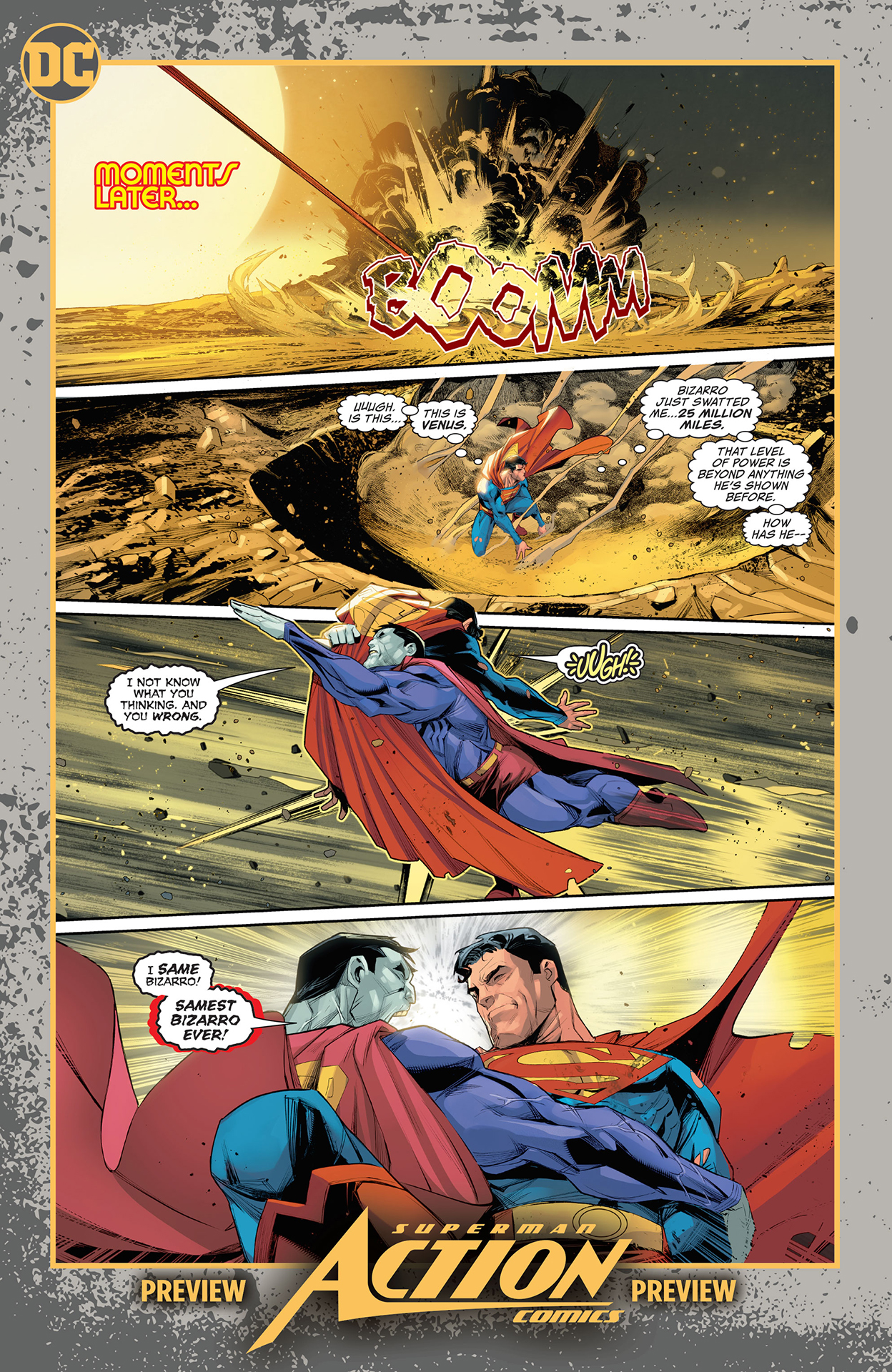
Something I noticed right away in Action Comics #1061 is that your reputation for writing very mythical superheroes is definitely coming through with your take on Superman and his world. How do you find ways to convey that larger-than-life scope in a story that's only three issues long?
Well, I felt like, tackling Superman for the first time, I couldn't do something small, right? On one hand, it's a three issue story, but the issues are 30 pages so there's still room to pack a lot of stuff in there. I didn't want to come out and make a small statement. I wanted to lean into the same way I felt when I took over Thor, like writing the God of Thunder, one of the most powerful figures in this entire universe. I needed to, in my mind, make a similar statement with Superman for my first time writing him.
So yeah, I wanted to go big in every way. The first fight we see between Superman and Bizarro is a colossal battle that spans the whole solar system. And then Bizarro strikes at Superman in a way that profoundly changes Metropolis, which will lead to issue two where those threads continue to build and strike at Superman in increasingly more challenging ways.
So even though it's only a three issue story, this is me, you know, absolutely swinging for the fences in every way to say something big with Superman, through a sort of challenge I don't think he's ever faced before.
I'm a huge Bizarro fan, so I love that you chose him as the antagonist for this story. I don't want to get too spoiler-y, but Bizarro allows you to capitalize on his nature as Superman's total opposite in a new way that hinges on how they both interact with the concept of magic. How did you dial in on that as the key to Superman and Bizarro's relationship for this story?
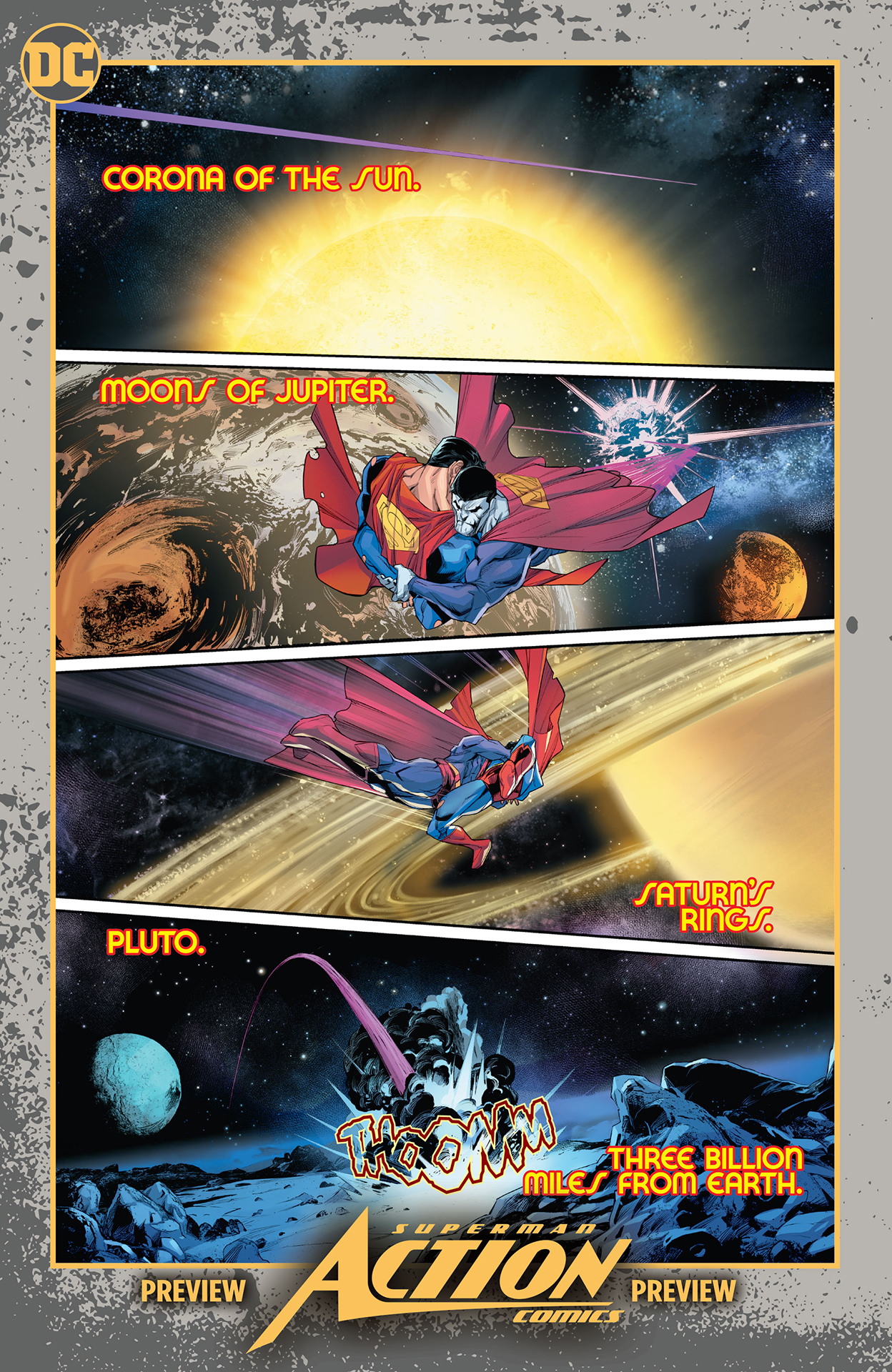
It was really just about exploring, you know, what is the nature of Bizarro? Like, there have been different versions of Bizarro over the years. The one I'm using here is the one who comes from Bizarro World, this planet of other Bizarros like him. So all we know about him is just that he's meant to be Superman's doppelganger, this warped funhouse mirrored image of Superman who's got the same powers. Someone who, in a knuckle-on-knuckle fight, can hold his own against Superman, is that powerful.
But what else does it really mean to be Superman's opposite? And yeah, the relationship to magic became a big part of that, and kind of opened the door for Bizarro to strike at Superman in a way that takes this from just being a fight of two guys punching each other to something that's much darker and more twisted, and more difficult for Superman to deal with.
I think I read a quote from you where you said you drew some inspiration from the Superman stories of the '50s, where Superman encounters some circumstance that totally changes his life, and has to navigate that back to his status quo. I picked up on that right away because everything about Action Comics #1061 has that very elemental essence of Superman, the same way those Silver Age stories do. What were your big touchstones in how you found your voice for Superman and your vision for Metropolis?
Well thanks, yeah. I mean, I think that's definitely, I don't know if I went into it consciously knowing "this is what I'm going for." But I think what you're saying fits exactly with how I see those Superman stories after, you know, 40 years or so of reading them.
I mean, I learned to read from that first issue of World's Finest I picked up, you know? I kind of learned to read from that book and those other comics that I was picking up at the time, so I think some of that has just imprinted touchstones in me along the way.
Like I said, those Alan Moore issues right before Crisis, and Crisis itself was a big book for me. And then John Byrne's stuff that came after that. And you know, there's some of Byrne's stuff that I look back at now and I don't necessarily agree with all the choices he made back then, but I was really swept away by those books at the time.
And of course All-Star Superman, and some of the choices Grant Morrison made in that book where they kind of took that Bizarro code to these really profoundly strange lengths. I'm trying to do the same thing, but with a, you know, a darker twist on it.
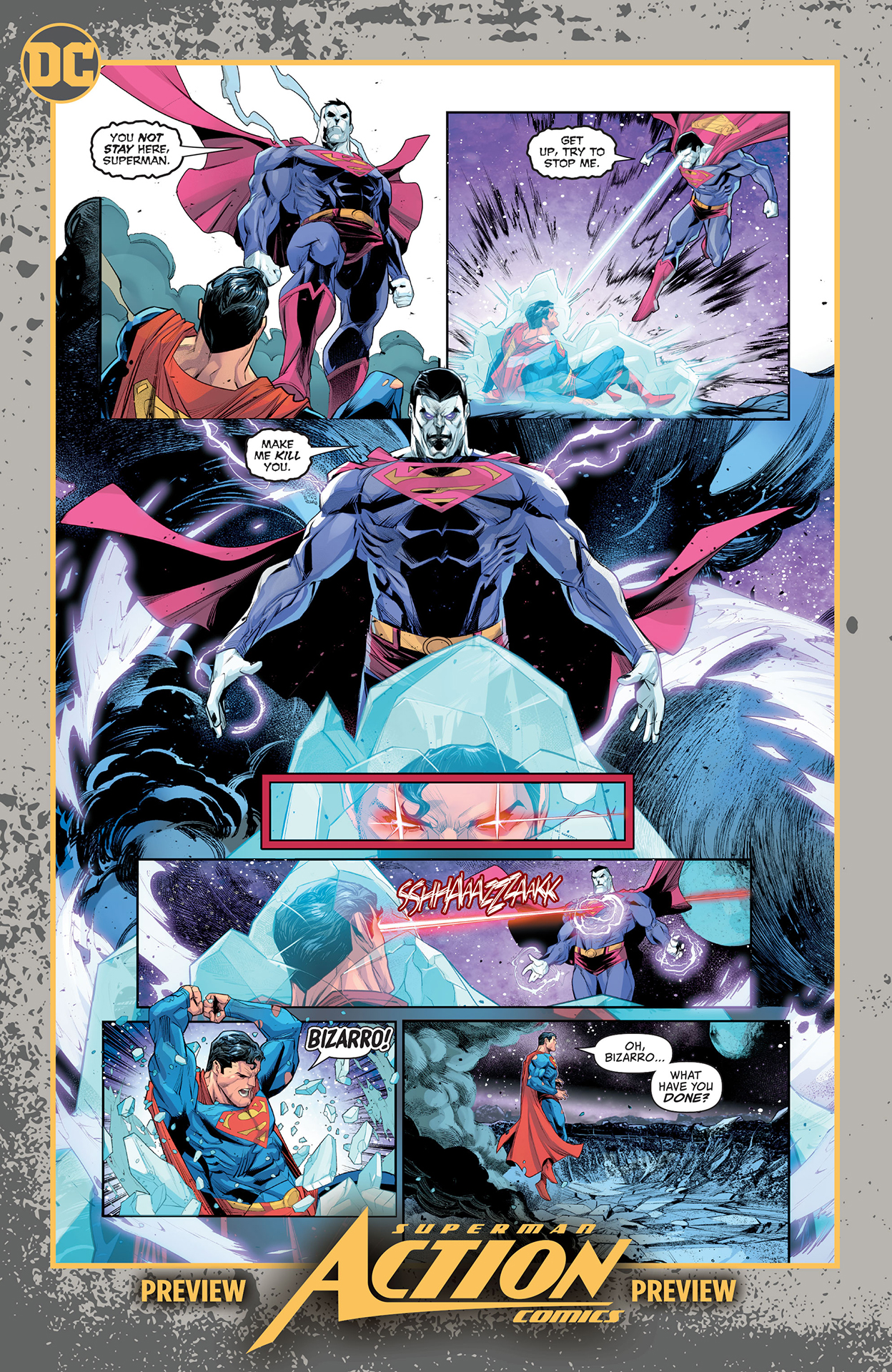
And then of course Mark Waid's Superman stories like Kingdom Come with Alex Ross and Superman: Birthright with Leinil Yu. Mark's the guy I feel like who has been able to distill Superman's voice and those Superman stories down to like, the diamond core of him in so many different ways.
And so Mark was actually the first person I called, you know, when I started trying to figure out like, what do I want to do. You know, I had the germ of an idea, and I called him to kind of get the Mark Waid approval on it. So, when Mark gave me a thumbs up, I felt like okay, you know, I'm good to go.
You mentioned Crisis on Infinite Earths and also the All-Star Superman version of Bizarro, which is interesting because the plot of this story and Bizarro's involvement in it kind of hinge on the Multiverse, and DC's changing Multiverse, in a very tangible way. How do you approach a character like Superman who has all these very distinctly separate mainstream incarnations that all count, and all feed into the somewhat fluid modern day version of the character, versus someone like Thor, who exists in a Multiverse, but who is also part of what Marvel likes to call a single, unbroken narrative where there's just one mainstream version of Thor Odinson with a single continuity?
Sure. I mean, certainly, the two are different in that way, but also in other ways, not so much. You can look at Marvel and say it's an unbroken narrative, but it's not like you can take all those stories and make them all fit neatly together. You have to kind of pick and choose, this is the stuff that's important, and this other stuff, we can kind of fudge, and change.
I mean, I changed a lot of things during my time on Thor. Characters are built on, retconned. You know "retcon," it's like a dirty word. But so much of what we know and love, especially about Thor, are things that changed from the get-go, things that were changed from the mythological character by Stan Lee and Jack Kirby and Larry Lieber.
So I think change is a fundamental part of these characters. They have to change and grow and evolve over time, just to stay relevant. That doesn't mean you throw out everything before. Again, you pick and choose the best parts that feel important, and fundamental to who the character should be.
This is why people still care about them so many years, so many decades after they were created, right? Like, you get to use all the best bits of that history to, again, tell a story that's different from all that other stuff. Not just standing on the shoulders of the great creators of the past and picking the bones of their stories, but how are you going to tell a story we haven't seen before? So I think that's absolutely what I'm trying to do here.
I'm still also cognizant of the fact that I've been in comics, you know, for almost 20 years, but in terms of DC, I'm still like the new kid on the block, right? I'm enjoying being the guy just kind of showing up and doing this Batman story that's a bit different, going into space, and now doing this Superman story that hopefully shows my love and appreciation for the character while also putting him through some awful stuff that we haven't seen him face before.
I think you can see in my Superman story, there's a little bit of that new guy mentality where right away, I think on page one, there's a reference to Gemworld, and to Warlord, and there are great references to the Hunger Dogs and Apokolips. There's stuff like that sprinkled throughout the story to show that, yeah I'm the new guy around here, I maybe just showed up here as a creator, but my love and my understanding and my appreciation of DC goes back to before I could f—in' read, you know? [laughs] It's been a long time, and hopefully the joy I feel in getting to work on these characters, especially writing Superman for the first time.
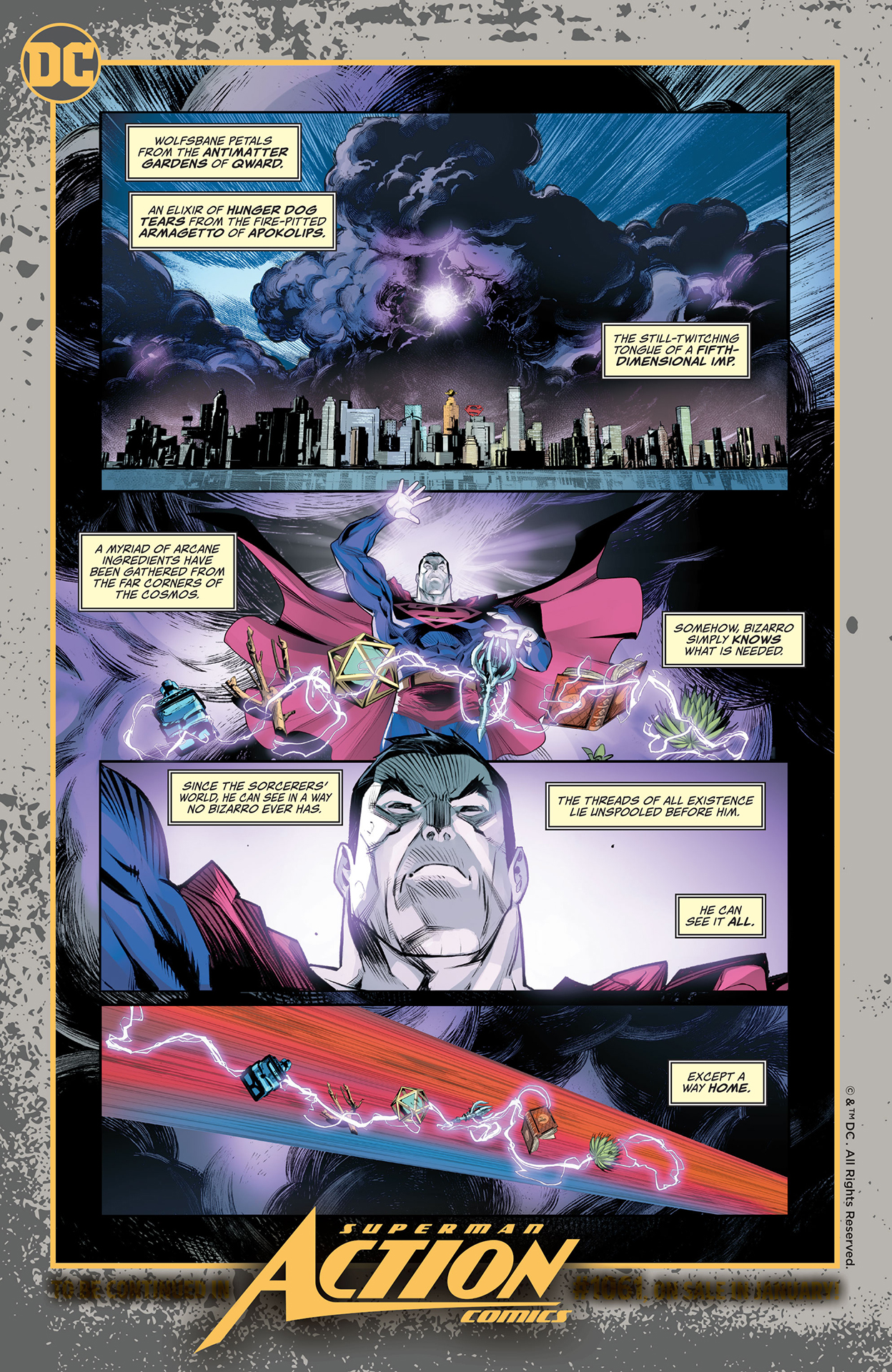
You're working on Action Comics with artist John Timms and colorist Rex Lokus, and letterer Dave Sharpe, and they all killed it on the first issue. You can see how far John's work has come in the time since he's been a DC mainstay. How has it been developing a working relationship with him?
Yeah, John's been killing it, you know? I'm the new guy in this situation. Like you said, he's been around the block for a while. I do feel like this book is him leveling up and really giving his all. He gets to draw so many different kinds of superhero stories within just this one Action Comics run. Like, there's big action, there's a sweeping grandeur that you expect from Superman, but there are also these weird, creepy, gritty, dark little scenes where he gets to take the weirdness and darkness up a as we go along in these next few issues. You get to see a whole variety of stuff he's capable of pulling off all within the same story.
So yeah, I've been incredibly happy, art-wise. You know it's like, what I do, as a comic book writer, it's weird in that what I actually write, the script, it's really just for one person - the person that's drawing it. It's really just for whoever's drawing it, because almost nobody gets to read the initial script but them. You get to read the thing we build together. But the script is really just for the artist.
So I feel like my job is a success if I just have whoever that person is excited to go, because there the one who's going to go sit at a drawing board for hours and hours and actually bring these ideas to life. I've been really happy cause it seems like John has been excited from the get-go, and seems to be having a lot of fun.
Along with this three issue run of Superman, you've got Batman: Off-World going on right now. Are you going to be sticking around at DC? Can you tease us on what you're working on next?
I can't give you any specific teases cause I could get in trouble [laughs]. But yeah, I mean, I'm not going anywhere. I kind of just showed up, just started working on stuff for DC last year. I'm super excited that the first projects I'm doing here are a Batman book and a run on Action Comics. That's a pretty great way to start off your relationship.
And that relationship is continuing. There's other stuff I've been working on and am about to start working on. I'm about to start writing something later this month. So yeah, that's the point of my career I'm at right now. I'm happy to be able to spread my wings and work wherever I choose to work on whatever characters speak to me in the moment.
Like I've said many times, my life as a comic book reader began with DC. Those are the books that first sparked my love for comics and made me really want to read comics for the rest of my life. Writing Batman and Superman right out of the gate is not a bad way to start, but I'm not even scratching the surface of what I have to say about those two characters, let alone the entire rest of the DC Universe.
Jason Aaron cites some of the best Superman stories of all time as inspiration for his Action Comics run.
I've been Newsarama's resident Marvel Comics expert and general comic book historian since 2011. I've also been the on-site reporter at most major comic conventions such as Comic-Con International: San Diego, New York Comic Con, and C2E2. Outside of comic journalism, I am the artist of many weird pictures, and the guitarist of many heavy riffs. (They/Them)
